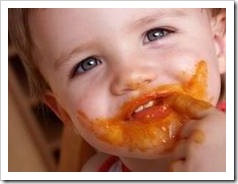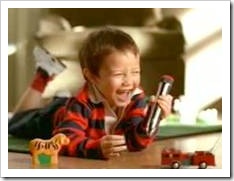 Every morning, I like to walk around our beautiful neighborhood. It warms me up for the day, gets my blood flowing and often, gives me great ideas and inspiration. Sometime, I get these ideas from something simple, like a dog barking.
Every morning, I like to walk around our beautiful neighborhood. It warms me up for the day, gets my blood flowing and often, gives me great ideas and inspiration. Sometime, I get these ideas from something simple, like a dog barking.
So there I was, walking on the street, and I passed by a house on the corner, where 3 dogs live. The house is well fenced, so the dogs cannot come out, but as I walked by, they came to the fence and barked excitedly.
“Hey there, fellows”, I said, “Good morning to you too”.
But then, the neighbor came out behind the dogs and started scolding them for barking at me and shooing them away from the fence.
“Quiet!” she said, “Get back in the yard”.
The dogs were really happy to see her, turned around, wagged their tails and stopped barking at me.
My mind, being all warmed up by then, wove the following sequence of events:
 The dogs bark at passing neighbors and are scolded for barking, so they stop.
The dogs bark at passing neighbors and are scolded for barking, so they stop.- After a while, dogs learn not to bark at passersby. After all, it is not nice. “Mommy” always says so.
- One night, “Mommy” and “Daddy” go out and burglars come in. The dogs, trying to be good, just like “Mommy” said, wag their tails at the burglars and keep quiet. The burglars get what they want, pat the dogs on the head and leave.
- “Mommy” and “Daddy” come home, see what happened, blame the dogs for being useless and start yelling at them all kinds of nasty things.
- The dogs are really confused and do not know what to do. No matter what they do, it is not right.
But, of course, I am not here to write about dogs. I am here to write about kids and about parenting. Can you see where this is going?
This typically happens to parents with their children as they grow up. When babies are born, they can sleep for hours, make a mess, not answer your questions, look away when you talk, pee on you and cry loudly, no matter what you are trying to do at the time. And that is OK. In fact, whatever they do is great.
But if a toddler cries in the middle of the supermarket, the pressure is on. “I want you to stop crying right now! You’re embarrassing me in front of all these people. Just sit in the trolley and be quiet”.
 About 10 years later, it becomes “Why won’t you talk to me? Why won’t you tell me what’s on your mind?”
About 10 years later, it becomes “Why won’t you talk to me? Why won’t you tell me what’s on your mind?”
In the same way, all Hell breaks loose when a kid makes a mess in a typical home. Quiet time out usually follows some severe talking-to with a stern face and there is shame and guilt and tears.
But after a while, it becomes “How come you’ve been sitting there for hours and haven’t drawn a single line yet? Why is it so difficult for you to express yourself?”
Sometimes, it can be unrelated to age, like when you tell your child to always tell the teacher when some other kid is being too rude or pushy. Then, you wonder why he or she comes to complain to you about every little conflict with friends or siblings. “Can’ you handle your own problems?” you say and put the little person to shame yet again.
Kids can get easily confused by these opposite message from their parents, because they do not feel any different from day to day and they cannot understand why they can do something one day and the same thing is frowned on the next.
So now we know what happens, but what can we do about it?
Well, we need to use responsibility and context.
 As parents, we must always see ourselves as ultimately responsible for what happens to our kids. This is not a legal requirement, it is a fact of life. We have made the kids and they are still learning the ropes, so we are responsible.
As parents, we must always see ourselves as ultimately responsible for what happens to our kids. This is not a legal requirement, it is a fact of life. We have made the kids and they are still learning the ropes, so we are responsible.
Our kids already see it that way, so they look up to us and study everything we say and do carefully in order to be just like us. With their unlimited ability to absorb information and their very low ability to judge and filter information, they take it all in and remember everything.
This means we need to consider what we say to our kids very carefully and prepare for various situations, rather than blurt out the first thing that comes to our head. It means that everything we say to our kids must take into account not only the current situation and how we feel about it, but also the long term and what our kids will learn from this experience.
Luckily, we are all grown up already and we can tell the difference between happily pouring some white paint over a black sheet of paper and pouring milk all over your little brother. They may both be cases of making a mess (art only comes later), but any parent can spot the difference in context.
The challenge is to stop our immediate “gut” reaction and ask ourselves, “How can I make this clear without making an emotional mess? How can I teach my dear child a useful lesson and turn the mess into a learning experience?”
It may help to physically go down to eye level with your child. Doing this allows you to connect better to where your child is emotionally, being small and fragile. If there is another adult around, this will give you some extra perspective on how your words, body language and facial expression will be taken.
 You may then want imagine your child over the years. Consider how each possible response might play out late on in his or her life, until one option seems to be the best both short term and long term.
You may then want imagine your child over the years. Consider how each possible response might play out late on in his or her life, until one option seems to be the best both short term and long term.
By highlighting the context, you can help your child see when certain behavior is appropriate and when it is not, as in “When you pour milk over your brother, he doesn’t like it. It makes him feel cold and sticky and I need to wash him. It’s OK if you spill some accidentally, but try to be careful and considerate”.
Do this and you will raise secure, confident, decisive, expressive and happy kids.
Oh, and if you have a dog, let it do its job too…
Happy parenting,
Gal
 The dogs bark at passing neighbors and are scolded for barking, so they stop.
The dogs bark at passing neighbors and are scolded for barking, so they stop.










